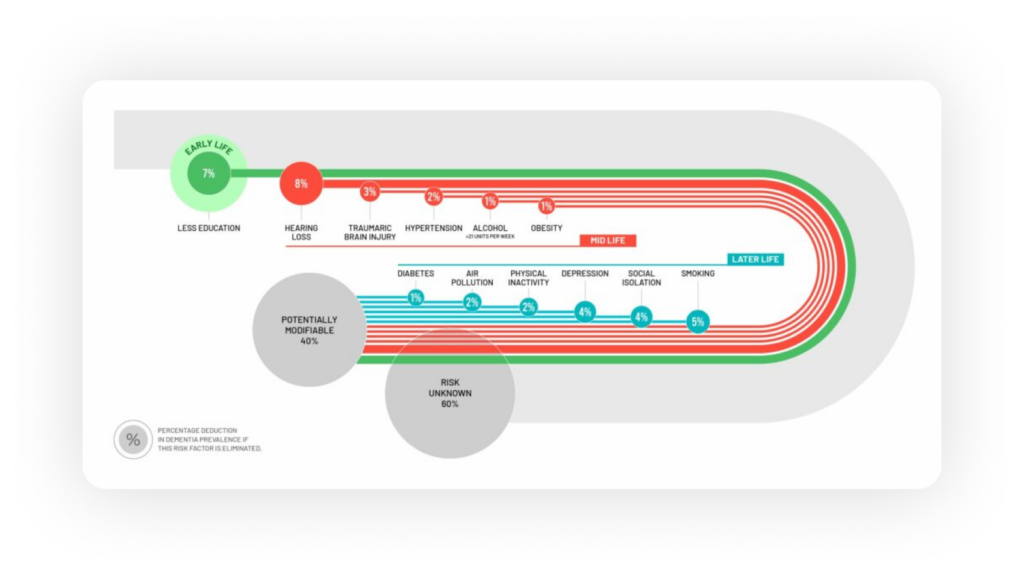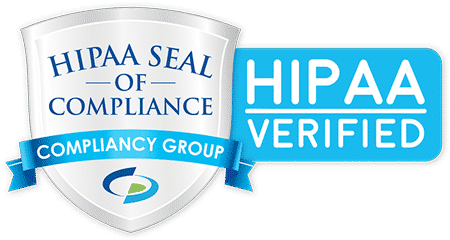How It Works

What Happens When You Book
Say hi!
Book an appointment with your care navigator – your personal guide for the journey
Meet your care team
Meet your doctor and other professionals who have the time and expertise to make a difference
Manage memory loss
Guided by latest treatment guidelines, we provide comprehensive care – including cognitive therapy, CBT, or medications

Risk Reduction
The Isaac Health and Memory Training Program
Memory and cognitive training: Cycles of 6 – 12 sessions of 40 minutes in a 1:1 coaching format to improve your memory to the level of a hobby memory champion
Full risk assessment across the majority of known risk factors for dementia
Optional medical consultation for advice on minimizing your personal risk (paid by insurance or separately)
Cognitive assessment and ongoing monitoring of cognitive function
Care team access and advice – all your questions answered
Did you know that…
40%
of dementia cases may be prevented or delayed
10 years
of memory and thinking can be significantly impacted by targeted cognitive training
1 in 3
older adults will develop dementia during their lifetime
18%
of cases are still preventable in later life
years
Targeted cognitive training can have a significant impact on memory and thinking 10 years down the line?
18% of cases are still preventable in later life
Common Risk Factors for Dementia

Cognitive training is effective
The ACTIVE study and other research have concluded that cognitive and memory training has a significant long term impact on improving cognition and activities of daily living.
In the ACTIVE study, 10 sessions of memory, reasoning or speed training were administered. The impact on cognition and activities of daily living was significant even 10 years later (with boosters).
The Isaac Health brain health and memory training program is based on the ACTIVE study protocol and enhanced with additional research findings.


Assessment
Our assessment process
Diagnosing dementia can be difficult, requiring many tests and expert medical advice. To diagnose the type of dementia, our clinical team looks for patterns of lost skills and abilities. New tests also help our doctors diagnose Alzheimer’s and other types of dementia with improved accuracy.
Diagnosing dementia early is crucial as it allows doctors can treat any reversible issues and monitor the patient’s condition. At Isaac Health, we use a set of simple steps to diagnose dementia.

Cognitive and Neuropsychological Tests
Our clinicians will evaluate your thinking ability. A number of tests measure thinking skills, such as memory, orientation, reasoning and judgment, language skills, and attention. A mental health professional can determine whether depression or another mental health condition is contributing to your symptoms.

Neurological evaluation
Our clinicians will evaluate your memory, language, visual perception, attention, problem-solving, movement, senses, balance, reflexes and other areas.

Brain scans and laboratory tests
CT or MRI scans can check for evidence of stroke or bleeding or tumor or hydrocephalus. PET scans can show patterns of brain activity and whether the amyloid or tau protein, hallmarks of Alzheimer’s disease, have been deposited in the brain. Simple blood tests can detect physical problems that can affect brain function, such as vitamin B-12 deficiency or an underactive thyroid gland. In certain cases, the spinal fluid is examined for infection, inflammation or markers of some degenerative diseases.

Diagnosis and treatment planning
Your doctor will discuss your diagnosis with you, as well as the best treatment options available. See our page on treatment for what some potential options may include.
Different Forms Of Dementia
Alzheimer’s disease is a progressive neurodegenerative disorder that can result in significant memory impairment. In saying that it is progressive, this means that it will progress overtime. It is mainly caused by the deposition of a protein that builds up both in and around brain cells. This also leads to the formation of plaques around the brain cells that hinder brain activity.
In addition to memory loss, patients in the late stages of Alzheimer’s have speech challenges and difficulty registering their surroundings properly.
Vascular dementia is the second most common cause of dementia in the US. As the name suggests, the main cause of vascular dementia is a problem with the blood vessel – either ischemic or hemorrhagic stroke and small vessel ischemic disease – leading to cognitive loss. Stenosis and blockage in brain blood vessels, impaired brain blood circulation, and the brain’s deprivation from vital nutrients could also cause vascular dementia.
Alzheimer’s and vascular dementia have many overlapping symptoms, such as cognitive impairment, lack of concentration, difficulty in understanding and communicating, and memory loss. At times, Vascular dementia has a more step-wise course of worsening rather than the more smooth progressive worsening in Alzheimer’s dementia.
To prevent vascular dementia, it is important to control vascular risk factors such as high blood pressure, diabetes, high cholesterol and smoking.
Lewy body dementia is a progressive neurodegenerative disease caused by the deposition of abnormal proteins, called alpha-synuclein, in the brain. The alpha-synuclein clusters result in chemical changes in the brain, leading to symptoms such as abnormal movements, difficulty with thought process, and behavior.
Sometimes it is difficult to diagnose this type of dementia since the symptoms overlap with Alzheimer’s and schizophrenia symptoms. The abnormal movements are similar to those in Parkinson disease, and so this is considered a “Parkinson plus” syndrome. Therefore, evaluation by memory disorder and movement disorder specialists can help reach the correct diagnosis.
Frontotemporal dementia affects the frontal and temporal lobes of the brain, which control language, behavior, and personality. Frontotemporal dementia occurs when either one of these lobes shrinks and does not function properly.
Symptoms vary according to the damaged area and can include speech problems or behavioral changes, including disinhibited (or uncontrolled) and socially inappropriate behavior, a decline in empathy, and a dramatic change in eating habits. Symptoms of frontotemporal dementia often begin in late 40s and 50s. The exact cause of this kind of dementia is still unknown.
Parkinson’s dementia is diagnosed if patients with Parkinson’s disease experience symptoms of dementia after a year of the onset of their motor difficulties. It is characterized by a loss of memory, trouble with concentrating, and difficulty in thinking and learning due to changes in the neurotransmitters in the brain., including dopamine.
Corticobasal degeneration is a rare progressive brain disease. It is a neurological abnormality caused by the loss of cells in some regions of the brain. People with the disorder tend to lose motor skills in one part of the body, which eventually spreads to the rest of the body. Initial symptoms include rigidity in the limbs, which prevent the patient from voluntarily moving the leg or arm. Over time, behavioral changes develop. The leading cause of this disease is the loss of brain tissue for unknown reasons. Therapies are conducted for each of the symptoms present.
Progressive Supranuclear Palsy (PSP) is similar to CBD due to the deterioration of certain areas in the brain, in this case involving the brainstem. It leads to imbalance, slowed movement, trouble in moving eyes, and loss of memory. The first symptom is usually a loss of balance.
Huntington’s is a progressive disease that affects a person’s motor abilities. Huntington’s is a genetic condition that begins with trouble in movement. The onset of dementia affects memory as a person is unable to learn new things and loses their sense of judgment. As the disease progresses further, a person’s intellect declines. Huntington’s disease can also affect people’s mental health. Therapies and medications directed towards symptoms can help.
Normal Pressure Hydrocephalus (NPH) is a rare neurological disease that creates trouble in movement and leads to dementia. Due to enlarged ventricles – which are the areas cerebrospinal fluid collects in the brain – this can lead to a triad of difficulty walking with a particular pattern of gait, difficulty controlling urine, and memory changes. Due to its similarity to other neurological disorders, many tests are required to diagnose it, and it often goes undiagnosed.
Creutzfeldt-Jakob disease is a rare yet fatal abnormality of the brain that can result in death within a year. Initial symptoms include weak memory, loss of body control, behavioral changes, and blurred vision, which escalate with time and lead to complete loss of memory and blindness. CJD is caused by abnormal forms of proteins in the brain, called “prions.”
HIV associated dementia (AIDS dementia) is caused by an infection that spreads across the brain and escalates with the symptoms of dementia. The membranes of the brain swell, causing abnormality in brain functions.

Our comprehensive approach
Dementia Treatment
Although there is no cure yet for dementia, there are treatments available. Brain health experts can provide coordinated care to improve overall brain health.
The goal of treatment is to delay cognitive decline and improve quality of life. In cases of Alzheimer’s disease, delaying the onset by just five years can reduce the risk of getting it by 50%.
Medication Treatments
The main medications used to treat Alzheimer’s disease are cholinesterase inhibitors. The three main drugs in this group are donepezil, rivastigmine, and galantamine. Donepezil can treat all stages of Alzheimer’s, while rivastigmine and galantamine are typically prescribed in mild-to-moderate stages of Alzheimer’s. These drugs prevent the breakdown of acetylcholine, which helps with memory and learning.
Another medication, memantine, partially inhibits NMDA receptors in the brain that can cause neuronal injury associated with neurological disorders such as dementia.
Memantine is approved for moderate to severe Alzheimer’s and is being studied for other types of cognitive decline, including vascular dementia.
Non-Medication Treatments
Non-drug treatments have been shown to be effective in treating Alzheimer’s and dementia. Cognitive therapy (CT) is one such treatment provided by speech language pathologists. CT uses mentally stimulating activities to improve cognitive function, build cognitive reserve, and teach compensatory techniques to minimize the impact of cognitive decline on daily life. It works well in individuals with mild to moderate dementia and mild cognitive impairment.
According to a report by the American Speech-Language-Hearing Association (ASHA), 72% of participants in cognitive treatment sessions experienced at least one level of improvement in functional communication measures, including memory, spoken language, and problem-solving.1
Monitoring and Surveillance
Monitoring and surveillance through cognitive assessments is a great way to track progression for Alzheimer’s disease and other cognitive conditions. If you are concerned about changes in memory or experiencing problems with thinking, consult a brain health specialist with Isaac Health.
Care Management
Your Isaac Health care team is your helping hand throughout the care journey, providing proactive check-ins on medication adherence and helping detect medical issues before they require a hospital visit. Isaac Health also offers referrals to community resources and social supports as needed.
- American Speech-Language-Hearing Association National Outcomes Measurement Association. (2019).
FAQs
Research has shown that almost half of dementia cases are potentially preventable by addressing known risk factors. These include both general health factors, environmental factors, medication, and mental activity. At MyIsaacHealth.com we will guide you to identify the risk factors most relevant to you and help you address them. We will also help you boost cognitive function through memory training and coaching. In isolated cases, certain medications may be indicated to control risk factors or boost cognitive function.
While there is a pipeline of potential medications to slow disease progression, there is currently limited medical treatment available. However, there are a few classes of drugs available to slow cognitive decline. See our section on treatment for details. In addition, cognitive interventions, such as cognitive stimulation therapy, has been shown in many cases to be as effective as medications in slowing cognitive decline, building cognitive reserve, and developing compensatory techniques to support living with cognitive decline. Finally, addressing risk factors and maintaining a high level of social and brain activity are the great ways to protect yourself.
Our diagnosis and treatment programs are covered by many forms of insurance. See our section on network coverage for details. For pricing without insurance coverage, see our packages.
Our care team consists of neurologists, other brain health doctors, psychologists, speech-language therapists, memory coaches, and care navigators.
While in many cases your health plan, health system, family physician, or neurologist may have sent you our way, you are welcome to sign up without a referral
If your have health insurance, most of our services will be covered under the terms and conditions of your policy. For prices without health insurance, please see our packages.
Isaac Health offers full services in New York, North Carolina, Florida, South Carolina, Georgia, Colorado, Texas, Illinois, Minnesota, Tennessee, Maryland, California, and Pennsylvania.
Individual services are also available in other states. Please call us for additional information.
We chose the name “Isaac Health” because it reminds us of three things: One of the most influential brains in human history (Sir Isaac Newton), one of the longest-lived biblical figures (Isaac, who lived to 180 years old), and the name “Isaac” literally means “one who laughs or rejoices”. Our name represents what we ultimately hope to achieve for the people we serve through our mission to promote and preserve brain health: a long, fulfilling life with many moments of genius and joy.
Your question not covered here? Please contact us.


